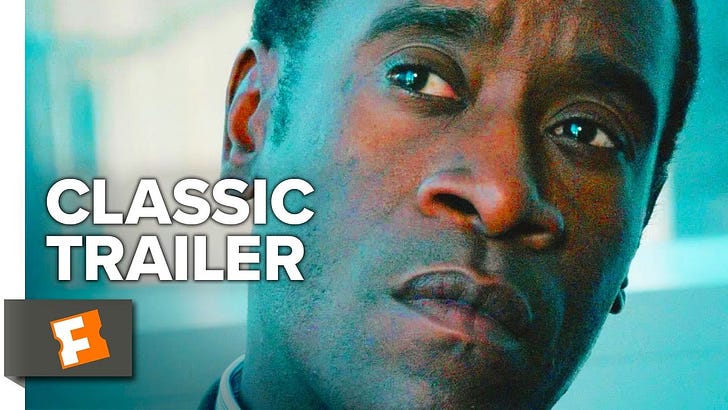The Pain of Appearances: Reflections on Reign Over Me (2007)
Two men. One with the perfect life. One broken by loss. Both suffer. Reign Over Me reveals that what looks whole may be empty—and what looks lost may carry deeper truth.
Sometimes we need years of distance to truly see.
After a long time, I rewatched Reign Over Me (2007), a film that quietly yet powerfully explores the deep cracks in what we call a "normal life."
On one side is Alan — a dentist, a father, a husband, a man with a polished life. A career, a home, a family. The kind of man society nods to approvingly. Stable. Functional. Normal.
And then there’s Charlie. A man who lost his wife and children in a plane crash years ago. He lives in a cluttered apartment where no one visits. He spends his days playing video games, riding a scooter, and playing in a band. No job, no apparent structure. He looks like a man unhinged.
But something happens that reveals what we often miss: Alan confesses to a street-side psychologist that, despite having it all, he has no friends. He is not really living. Beneath the mask of perfection is a man starved of connection. Charlie, in contrast — the so-called madman — lives with raw authenticity. He resists the cage of expectation. He may be shattered, but he is real.
One appears free. The other is.
Both suffer. Just in different shapes.
And that’s the soul of the film — it doesn’t give us spiritual clichés like “just be in the moment” or “don’t resist what is.” It dares to show the full terrain of the human condition — messy, contradictory, and often unspoken. Each character suffers in their own private way, not as punishment, but as the complex cost of being alive inside a world that doesn't know what to do with pain.
This isn’t a story about healing. It’s about recognizing. Recognizing that pain doesn't always wear visible wounds. That freedom isn’t about fitting in. That the soul, when shaped by loss, no longer plays by the rules of the world.
It reminds us that in the quiet corridors of the soul, the real story begins — where words often fail, and presence alone is not enough. Some wounds don’t need fixing. They need witnessing.
And maybe that is enough.




🙌
Truee